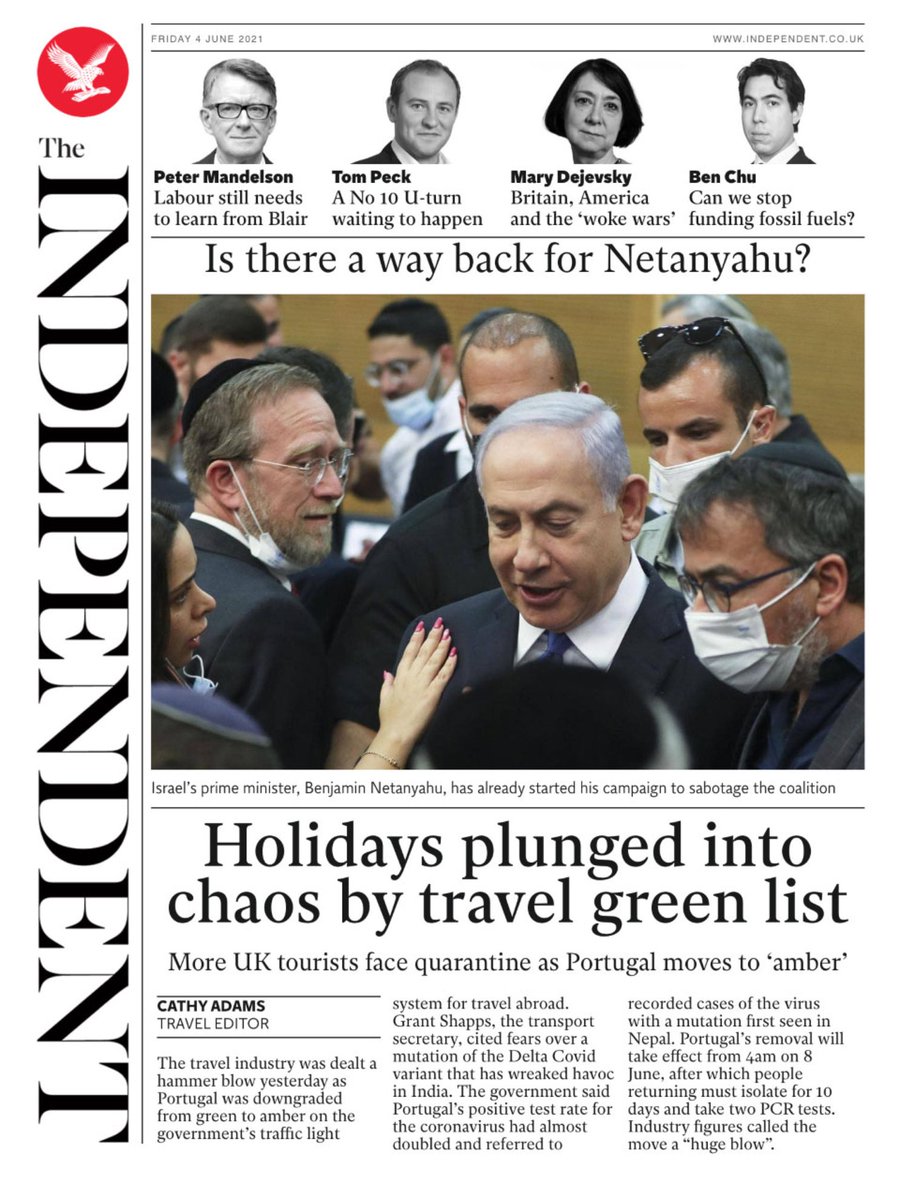
Newspaper Round Up: 4th of June 2021

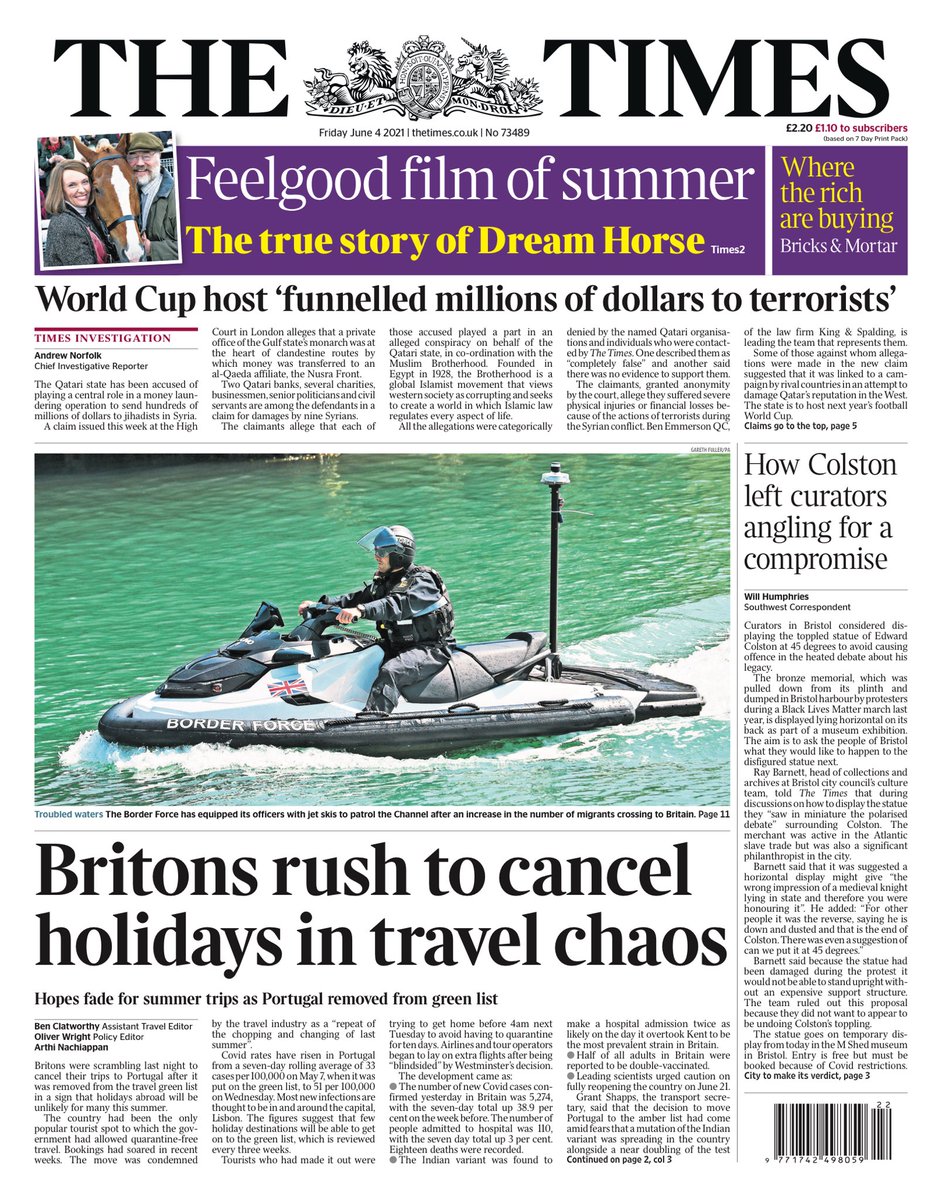
Times Front Page 4th of June 2021
The Times reports that people were rushing to cancel their holidays following the removal of Portugal from the amber travel list. It add that tourists have until 4am on Tuesday next week to leave the country and return to the UK if they want to avoid quarantine.
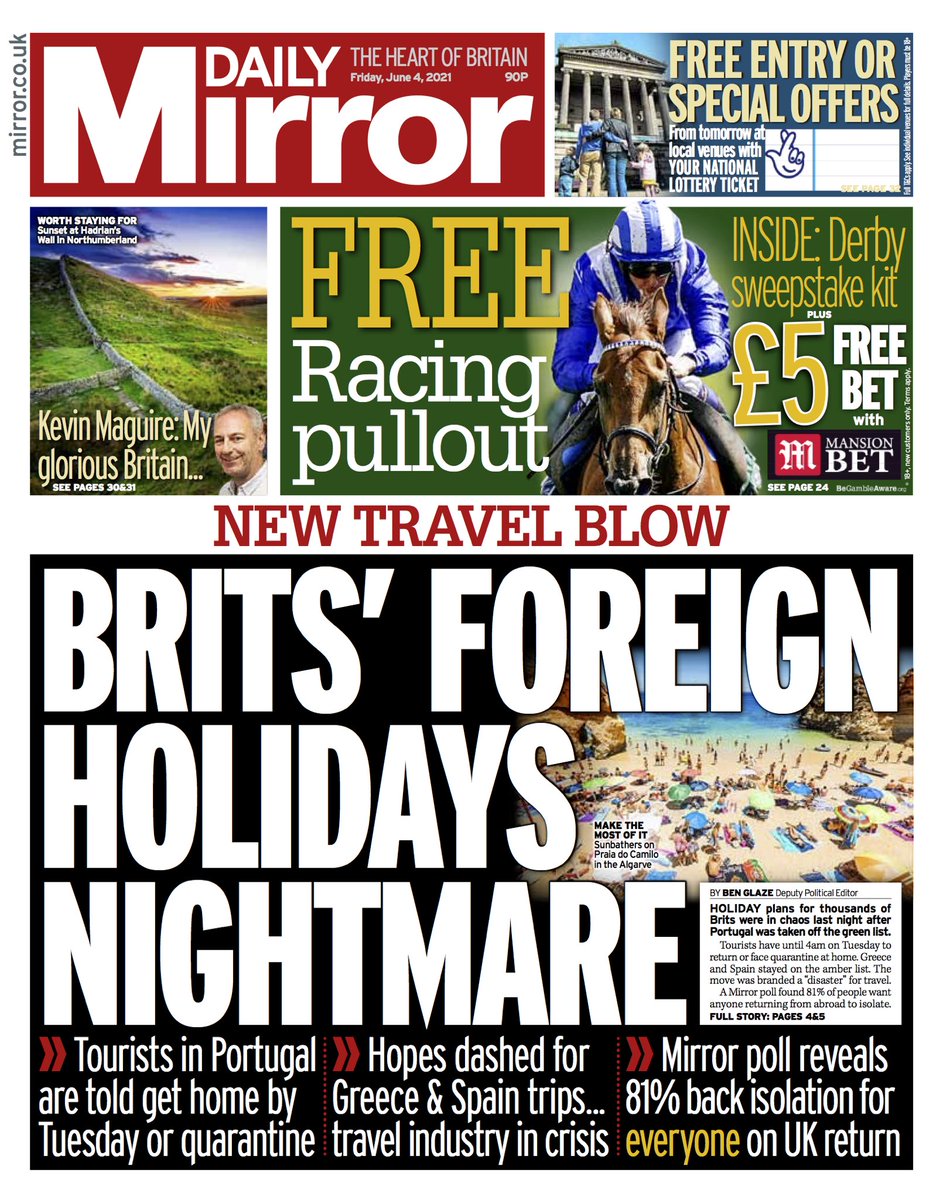
Daily Mirror Front Page 4th of June 2021
“Brits’ Foreign Holidays Nightmare” says the Daily Mirror, with a poll for the paper claiming that 81% of people want isolation for everyone entering the UK.

Daily Express Front Page 4th of June 2021
Like many of the other papers, the Daily Express splashes on the changes to the travel list. The paper says that putting Portugal on the amber list is a “Summer Holiday Blow for Millions”.

Daily Mail Front Page 4th of June 2021
The Daily Mail’s front page says “Summer Holidays Plunged into Chaos” as no new countries placed on the travel green list. The paper says that Gibraltar is “the only realistic holiday destination which Britons can visit quarantine-free” due to strict entry requirements in other locations.

Daily Star Front Page 4th of June 2021
The Daily Star has a tongue-in-cheek take on the latest change to travel restrictions, identifying Boris Johnson and other members of the cabinet as “Clueless Clowns who are Ruining our Summer Hols”.
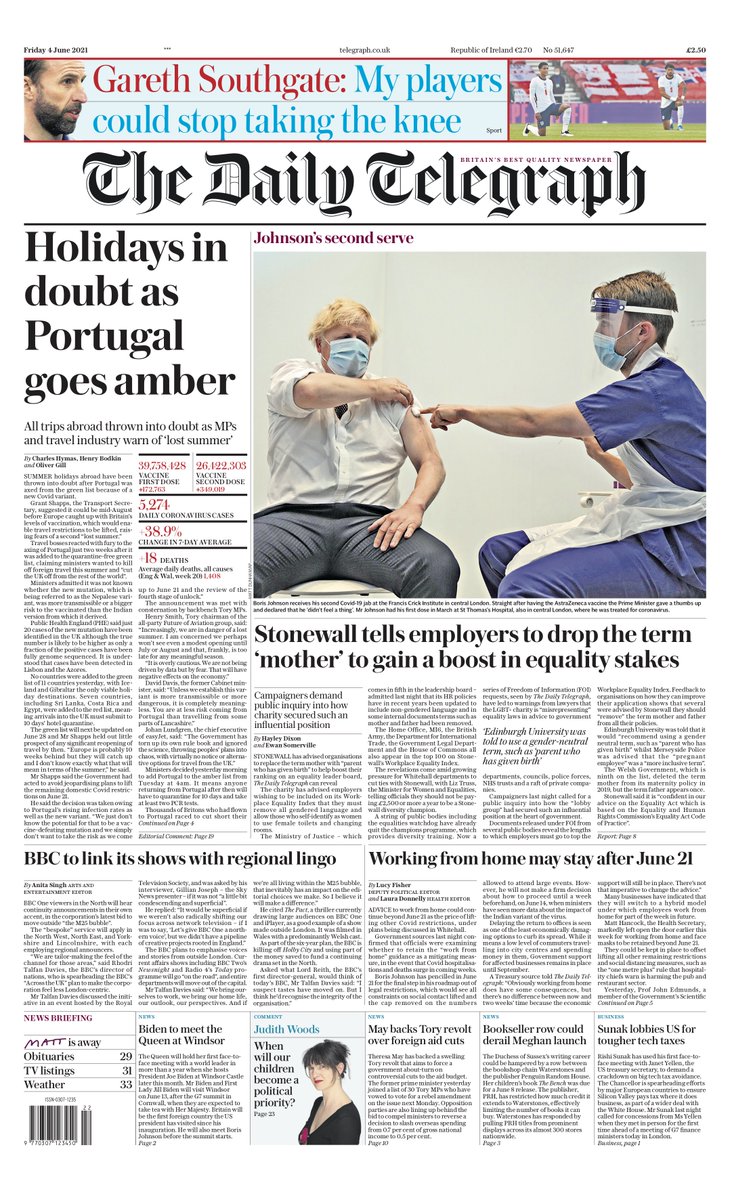
Daily Telegraph Front Page 4th of June 2021
The Daily Telegraph joins most of the other papers in leading with the news that Portugal has been placed on the amber travel list. It also features a picture of Boris Johnson getting his second COVID vaccine dose.
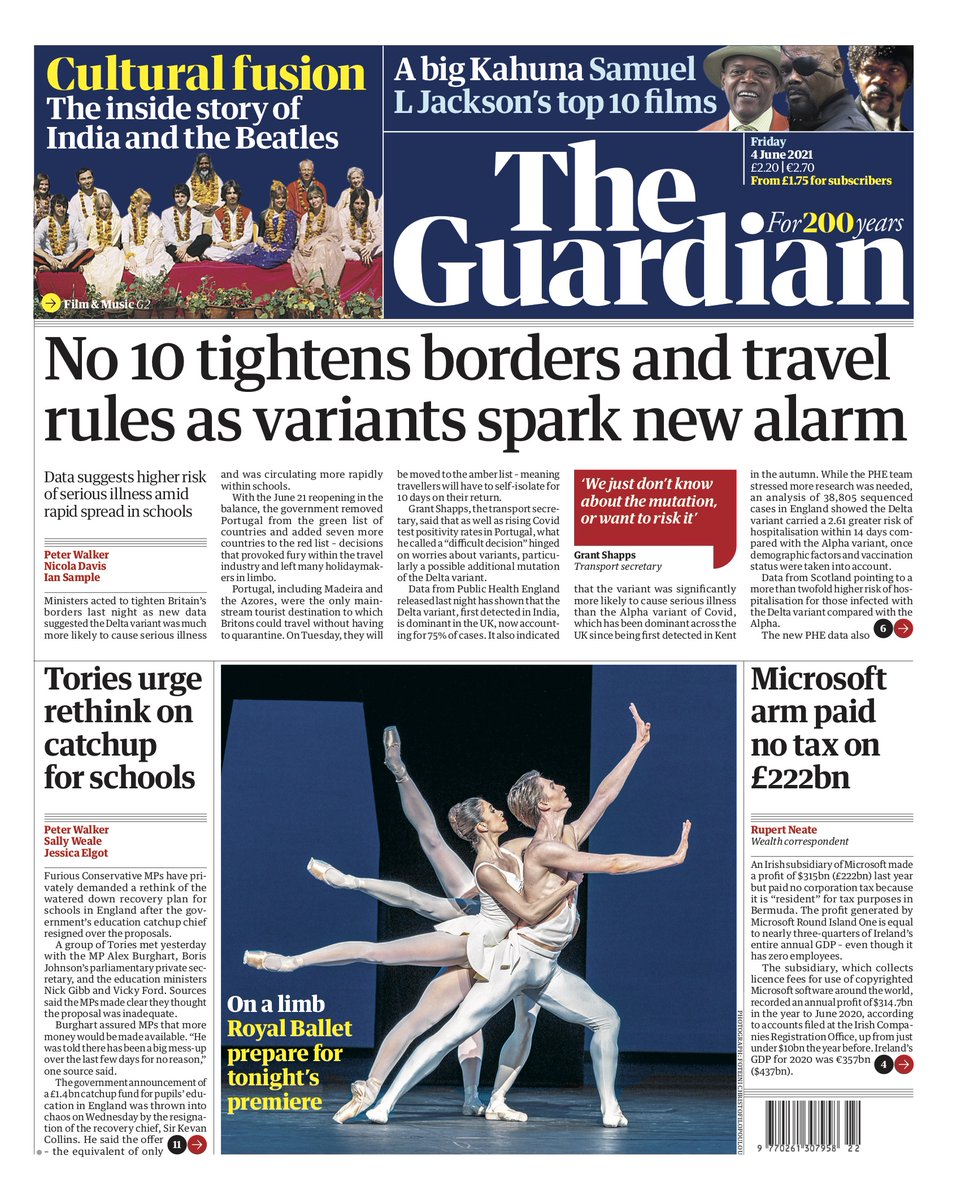
Guardian Front Page 4th of June 2021
“No 10 tightens borders and travel rules as variants spark new alarm” is The Guardian splash. The paper adds that the Delta variant – first identified in India – may be more likely to “cause serious illness and was circulating more rapidly in schools”.

i Front Page 4th of June 2021
The i says “Holiday in the UK to save 21 June”, as the paper reports on the changes to the holiday travel list. 21 June is when the next stage of lockdown measures is due to be eased.
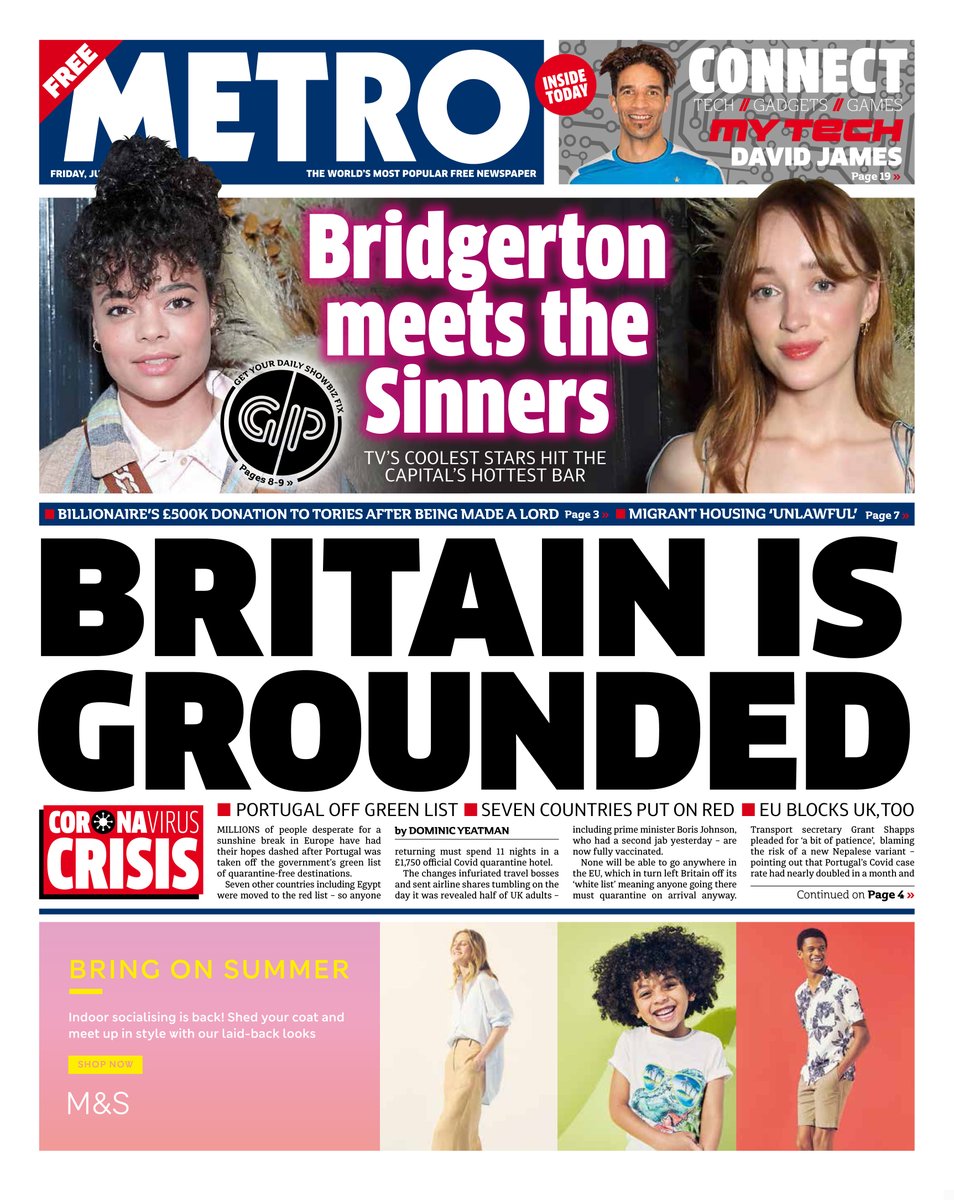
Metro Front Page 4th of June 2021
The latest changes to the UK’s traffic light travel list makes the lead story for the Metro. The paper splashes the headline “Britain Is Grounded”.
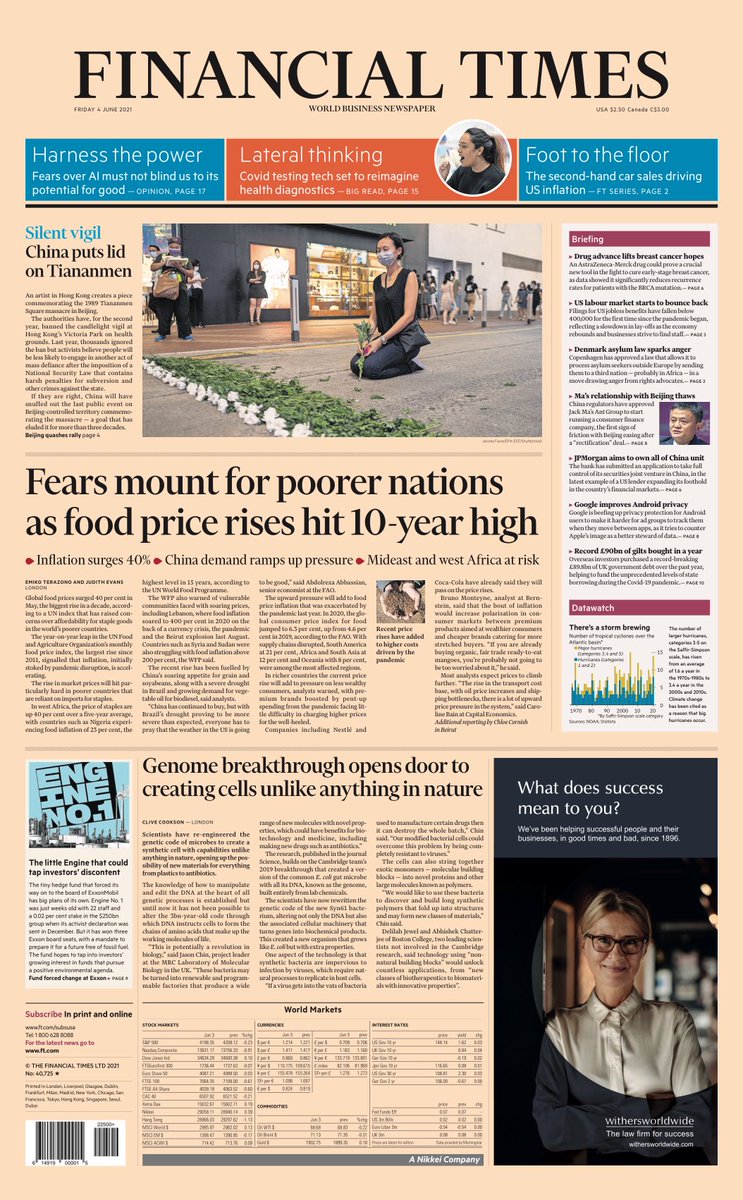
Financial Times Front Page 4th of June 2021
The Financial Times leads on a story that global food prices rose by 40% in May, according to the UN Food and Agriculture Organisation. This will hit poorer countries particularly hard, the paper reports.